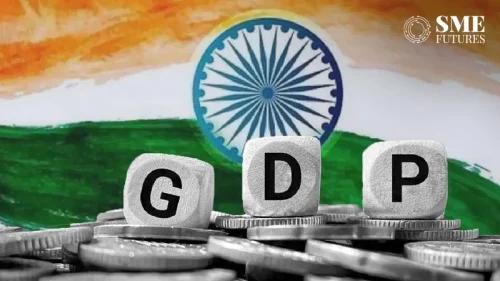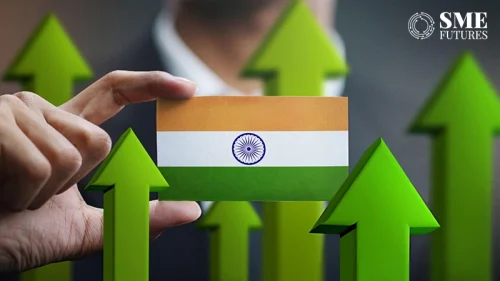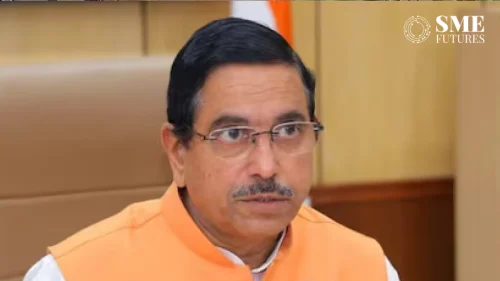The already strained healthcare industry has been feeling the negative economic impact of COVID-19 with sliding bed occupancies and uncertainty of the burden of the virus. Yet, private hospitals and nursing homes, that constitute more than 60 per cent of beds at 8.5-9 lac, 60 per cent of inpatients and 80 per cent of doctors in India, have been investing heavily over the past month in additional manpower, equipment, consumables and other resources to ensure 100 per cent preparedness for safety in the healthcare facilities and eventual treatment of patients, if needed.
COVID-19 pandemic has caused adverse impact on private healthcare sector resulting in 70 – 80 per cent drop in footfall, test volumes and 50-70 per cent drop in revenue in last ten days of March; expected to sustain in month of April with continued lock down.
Many small hospitals and nursing homes, especially in tier-II and III cities, have been forced to close down their operations since their cash flows have dried-up. Possible ramp up will be gradual, taking at least three quarters for return to normalcy
With an estimated impact of Rs 14,000 to Rs 24,000 Crore operating losses for the quarter, the sector would need liquidity infusion, indirect and direct tax benefits, and fixed cost subsidies from the Government to address the disruption.
While the government is taking cognizance of financial strain in sectors like hospitality, tourism, construction, little is being discussed regarding the distress felt by the private healthcare sector.
Dr Sangita Reddy, President, FICCI and Joint Managing Director, Apollo Hospitals Group, said, “The private healthcare sector in India has stood beside the government firmly to contain the virus and is deeply committed to the war against COVID-19. However, there is an urgent need to consider the healthcare industry’s triple burden viz. low financial performance in pre-COVID state; sharp drop in out-patient footfalls, diagnostic testing, elective surgeries and international patients across the sector is impacting cash flow; and the increased investments due to COVID-19; which has impacted the hospitals and laboratories like never before.”
The Prime Minister’s call to the nation to honour the healthcare professionals has indeed been a morale booster. However, with dwindling revenues, government measures in terms of liquidity infusion, tax reliefs and other waivers have become crucial for the survival of health services providers of the country.
Dr Alok Roy, Chair- FICCI Healthservices Committee and Chairman, Medica Group of Hospitals, said, “The financial distress accentuated by COVID-19 lockdown has forced several standalone and small nursing homes in tier II and III cities to down the shutters. Many others are at high risk of closing down soon since their cash flows have dried up, due to steep decline in patient footfalls, and they are facing liquidity crisis for even sustaining their staff salaries.”
In view of this, FICCI in partnership with EY, carried out a study of the economic impact of COVID-19 on private healthcare sector. The report reveals that the private hospitals and laboratories, which were already facing multiple challenges, will witness an acute crisis due to COVID-19 and the subsequent lockdown, which has resulted in occupancy levels to fall to a mere 40 per cent by late-March vis-a-vis pre-COVID occupancy levels of ~65-70 per cent. This is expected to reduce even further. Impact on diagnostic labs is even worse, with almost 80 per cent fall in patient visits and revenue.
Kaivaan Movdawalla, Partner- Healthcare, EY India, said, “While the private sector stands fully committed to partner with the government as a national duty, it truly finds itself in a compelling situation to beseech the government for ‘differential’ financial forbearance measures and to be supported well, in order to best utilise its capabilities and capacity to serve the nation in this hour of crisis.”
FICCI-EY report recommends government support through Liquidity infusion for financing the operating losses through short term interest free/ concessional interest rate loans to address the liquidity gap to the tune of Rs 14,000 -24,000 Cr.
Although the government has issued a notification for the release of government dues under CGHS and ECHS schemes to private hospitals, which is in the range of Rs 1700-2000 crores, the payment is yet to be processed. Immediate release of such dues is crucial.
Other recommendations for providing urgent financial stimulus for the sector are:
- Indirect tax reliefs/ exemptions/ waivers like- recoup amount equivalent to ineligible GST credits paid on procurements for a stipulated period
- Customs duty / GST exemption on essential medicines, consumables and devices for treatment of COVID patients
- Waiver or reduction of health cess on medical devices
- Extension of time under the EPCG scheme etc.
- Income tax benefits and deferment of statutory liability payments without interest, penalty for a stipulated period (3-6 months)
- Rebate on commercial rate of power for a stipulated period









